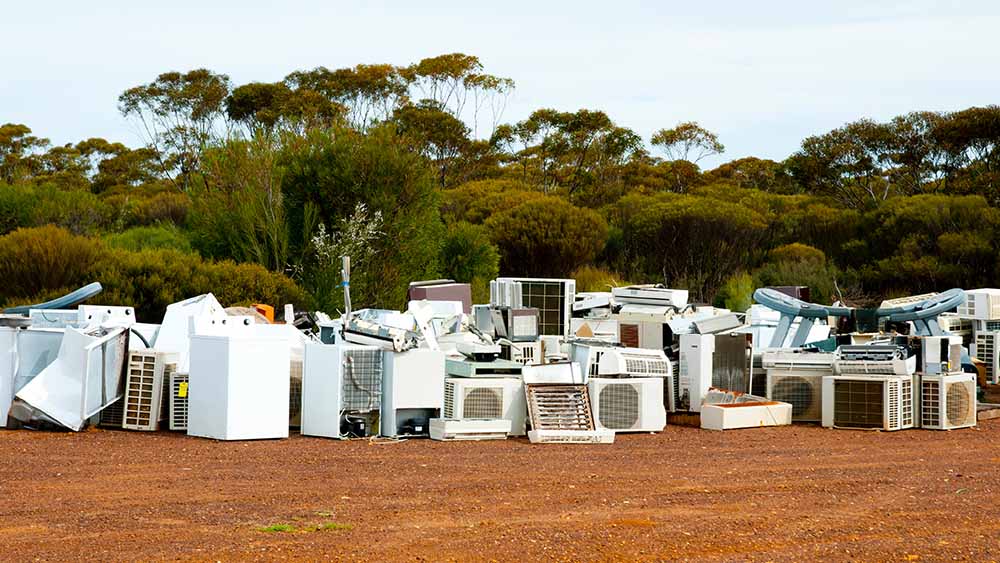
Key Takeaways
- AC units containing refrigerants like R-22 or R-410A can harm the environment if not disposed of properly.
- Use certified AC recycling programs or local services to safely and legally dispose of your old unit.
- If your AC still works, consider donating it to charities or shelters to help others and keep it out of the landfill.
According to the 2020 Residential Energy Consumption Survey, air conditioning is used by 88% of U.S. households. However, as with all appliances, they have a limited operating life. At the end of their lifespan, they are far too inefficient and environmentally damaging to continue operating.
You can apply some cautious measures to increase the lifespan of your unit, but at one point or another, air conditioner disposal will be inevitable.
However, Proper air conditioner disposal is essential for both environmental protection and compliance with local regulations. When it’s time to replace an old unit, simply throwing it away is not an option due to the harmful refrigerants and materials it contains. Recycling or responsibly disposing of your air conditioner ensures that hazardous substances are handled correctly, reducing your carbon footprint and contributing to a cleaner, safer environment.
So, are you wondering how to dispose of an air conditioner? Let’s get to the details!
Why Do We Need to Be Careful About Air Conditioner Disposal?

Due to the environmental risks involved, improper disposal of air conditioners is illegal in many places. Most countries have regulations that require proper handling and disposal of refrigerants and other hazardous materials found in AC units. Failure to follow these rules can lead to fines and legal penalties.
Proper air conditioner disposal is crucial because these units contain harmful chemicals like refrigerants, such as CFCs and HCFCs, that can damage the ozone layer if released into the atmosphere.
Additionally, air conditioners have valuable materials like copper, aluminum, and steel that can be recycled. Careful disposal ensures these resources are reclaimed, reducing the need for new raw materials and lowering overall energy consumption in manufacturing.
How to Correctly Dispose of an Air Conditioner?
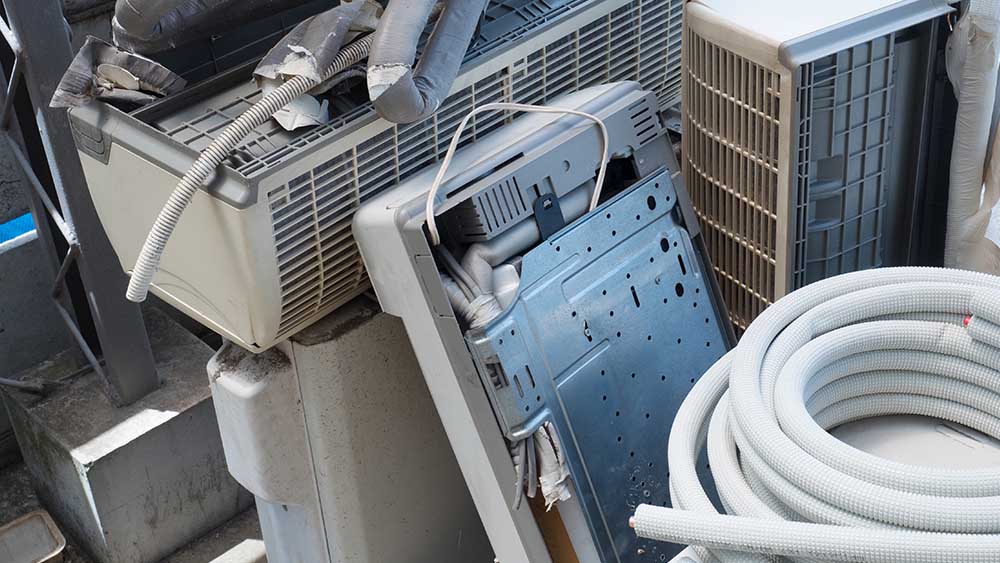
The disposal procedures for air conditioners are mostly the same, be it a window air conditioner or a mini-split. Disposal procedures are also dependent on your location. But wherever you choose to dispose of your air conditioner, it will be done by qualified professionals. Do not attempt to perform the same job at home, leading to severe injury and environmental damages.
Let’s have a look at some of the ways you can dispose of your air conditioner locally:
Send It off to Your Local Scrap Yard
Qualified scrap yards undertake the air conditioner disposal process according to EPA regulations. You can visit your local government website to get an idea about available facilities or browse the Responsible Appliance Disposal (RAD) partners of the EPA. These locations are listed with the EPA and can perform the task of air conditioner disposal.
Search for a Rebate Program
These days, most local utilities and state governments offer rebates to users who turn in their old, low-efficiency air conditioners and replace them with newer, more efficient ones. This way, not only do you save on extra costs for a new unit, but you also get your old air conditioner disposed of safely. In addition, this program incentivizes the proper disposal of air conditioners. Contact your electricity provider to find out more about programs specific to your location.
Consult Your Local Disposal Agency
Your local sanitation department would often be in the loop about disposing of old air conditioners. They could have a specifically dedicated air conditioner disposal area and have qualified technicians and staff for it. Or they could be in a partnership with a third-party agency that does the job for them. It is always a good idea to check with your sanitation agency first.
Opt for a Retailer Exchange
Sometimes, retailers and distributors can do the job for you. For example, if you go out to buy a new air conditioner, the retailer might give you the option of giving them your old air conditioner and adjusting the cost in the form of a rebate, much like a utility. The retailer is then responsible for the proper disposal of the appliance.
Go Environmentally Friendly & Recycle
Perhaps the noblest solution is to give your old air conditioner to a local charity or shelter home. Rather than buy a new one and incur additional costs, your local charity would be thrilled to get a functioning air conditioner at a fraction of the cost. You may also get some tax relief, along with the mental satisfaction of donating to a noble cause.
Related: Why Green Air Conditioning Is No Longer a Choice but a Necessity
Refurbish Your Old Air Conditioner
Usually, old air conditioners can suffer from some common HVAC problems, tempting you to go for a replacement. However, if you do not want to dispose of your air conditioner altogether, there’s another option of making it as good as new. You could consult a qualified contractor and have them refurbish your air conditioner.
Refurbishing your old air conditioner usually includes cleaning your unit, topping up the refrigerant, fixing any leakages in the piping, repairing the condenser fans and fins, and deep cleaning the internal systems.
One thing to keep in mind is that air conditioners manufactured before 2010 cannot be refurbished because they use R-22 refrigerant, which is being phased out. If you think of converting an older air conditioner to be compatible with R-410A, that is not an option either because both systems are fundamentally incompatible.
Recycle Your Air Conditioner
Before recycling your air conditioner, ensure you remove any panels, doors, or covers to prevent small animals from getting trapped inside. Next, you must contact a professional to remove all refrigerants from your system. After the refrigerant has been removed, you can begin dismantling the unit for scrap parts. The aluminum coils, fan motor, radiator, and any other metal parts can be sold to a local scrap yard for a small amount of cash.
Make Your Air Conditioner Smart!

When prioritizing ethical and environmentally friendly air conditioner disposal, it’s equally important to use these appliances strategically. A great way to achieve this is by incorporating smart thermostats for mini-splits and smart thermostats for central HVAC systems. These smart climate control devices enhance your HVAC systems with intelligent features that allow you to optimize energy usage, making your home more sustainable and eco-friendly.
Smart thermostats bring unparalleled comfort and convenience to your air conditioning, allowing global remote controls through your smartphone. In addition, they connect your air conditioner to the internet and bring with them a whole host of other features such as geolocation, weekly scheduling, and intelligent humidity & temperature-based triggers. Moreover, through usage history tracking and usage audit, you can potentially cut down on wastage and save on your utility bills.
Here’s how to DIY a smart air conditioner!
Your best choice to make any mini-split, window,
or portable AC smart. Enhance your comfort and savings.

Take Responsibility for a Greener Future!
While it’s best to maintain your air conditioner to extend its lifespan, all appliances eventually reach the end of their life. When it’s time to dispose of your old AC, you have multiple options. No matter which route you take, it’s essential to be mindful of how our lifestyle impacts the environment. By adhering to environmental laws and regulations, you can significantly lessen the negative effects of improper disposal.


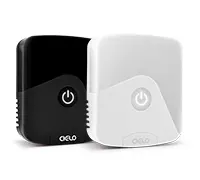

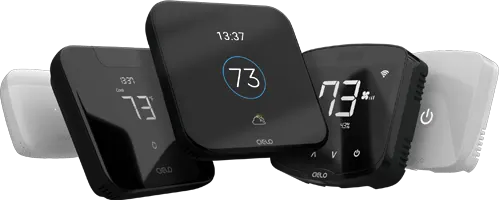

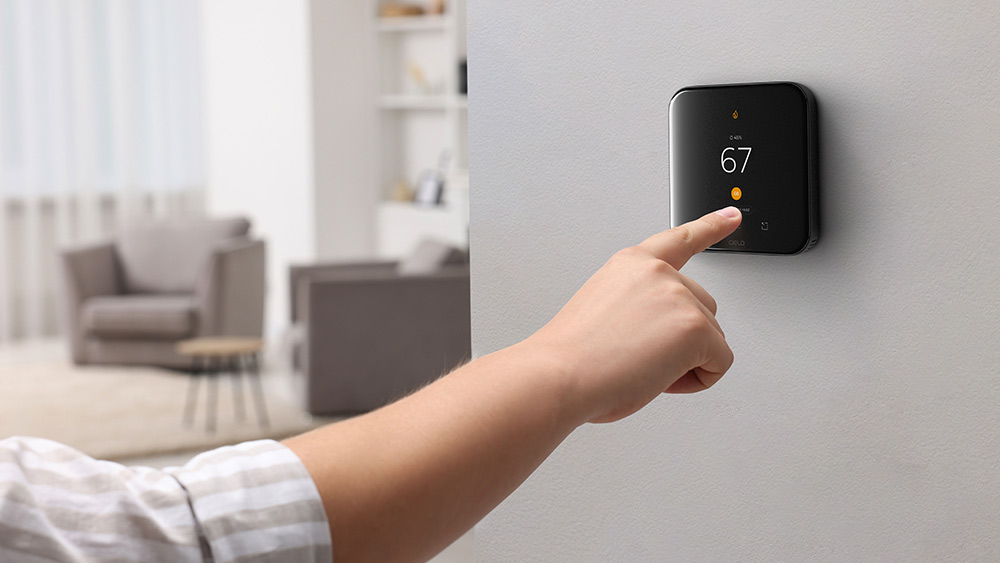
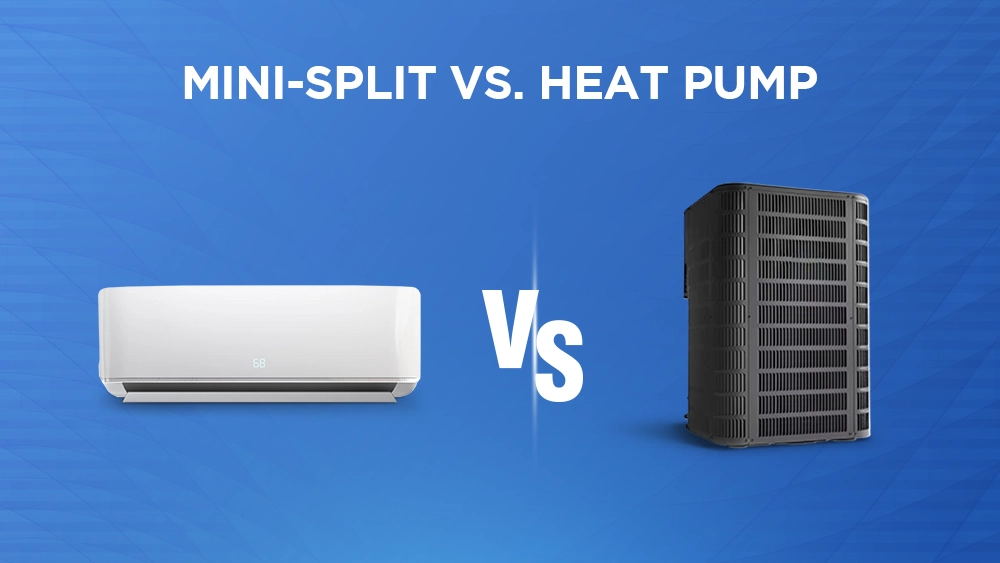

4 Comments. Leave new
The switch broke cause it was plastic and I looked to see if it could be replaced, that switch as been discontinued or is on back order
Hi Russel, what kind of switch are you talking about?
Thank you for pointing out that taking your old air conditioner to a scrap yard is an environmentally responsible way to get rid of it. I want to make sure that I dispose of my old air conditioner properly, so I’m considering taking it to a scrap metal recycling business. I’m going to search for a good business in my area that offers scrap metal recycling services.
Thanks for explaining how the noblest action is to recycle your AC unit. I mean, someone else can easily find a use for it that way. You could avoid just wasting precious materials too that can harm the environment if you aren’t careful.